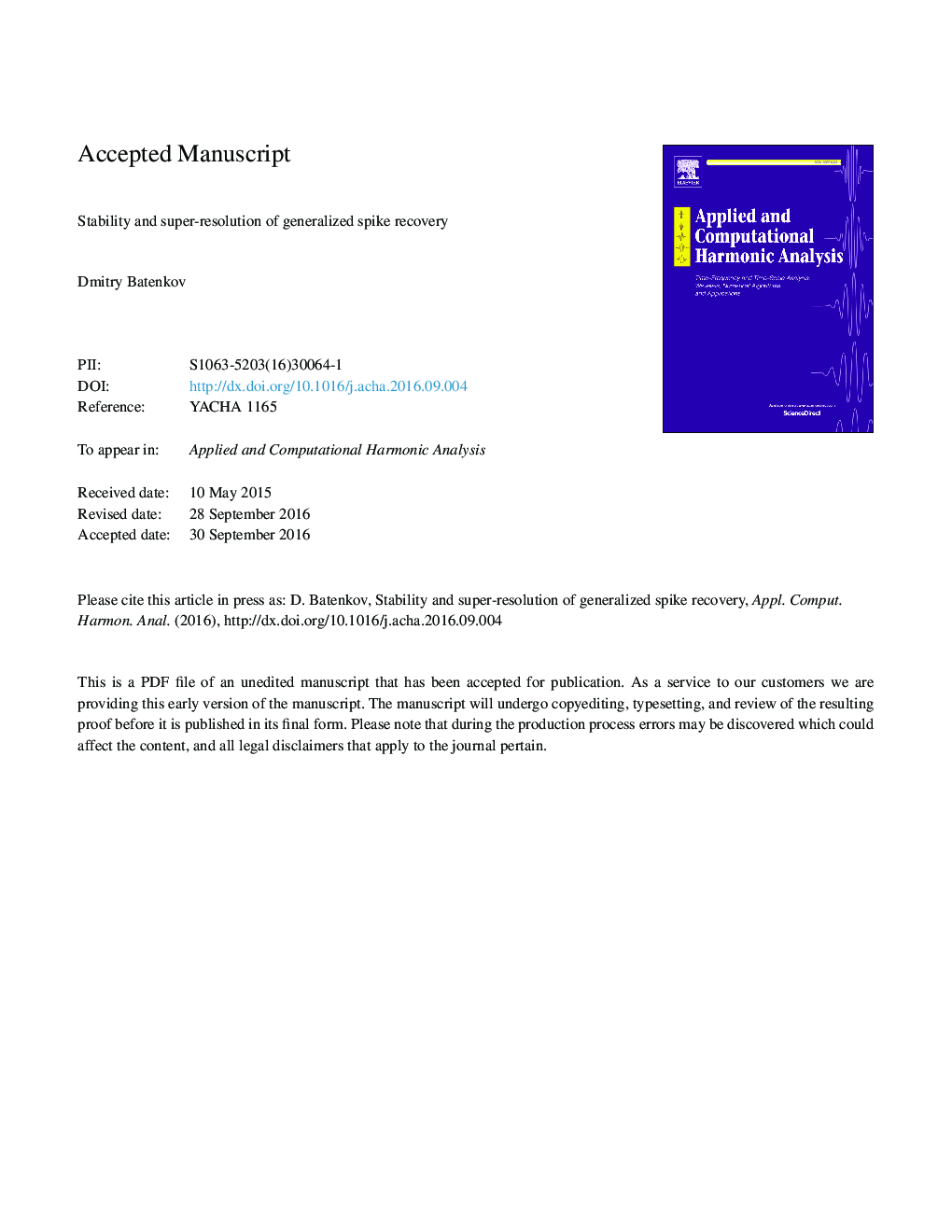| Article ID | Journal | Published Year | Pages | File Type |
|---|---|---|---|---|
| 8898198 | Applied and Computational Harmonic Analysis | 2018 | 34 Pages |
Abstract
We consider the problem of recovering a linear combination of Dirac delta functions and derivatives from a finite number of Fourier samples corrupted by noise. This is a generalized version of the well-known spike recovery problem, which is receiving much attention recently. We analyze the numerical conditioning of this problem in two different settings depending on the order of magnitude of the quantity Nη, where N is the number of Fourier samples and η is the minimal distance between the generalized spikes. In the “well-conditioned” regime Nηâ«1, we provide upper bounds for first-order perturbation of the solution to the corresponding least-squares problem. In the near-colliding, or “super-resolution” regime Nηâ0 with a single cluster, we propose a natural regularization scheme based on decimating the samples - essentially increasing the separation η - and demonstrate the effectiveness and near-optimality of this scheme in practice.
Related Topics
Physical Sciences and Engineering
Mathematics
Analysis
Authors
Dmitry Batenkov,
